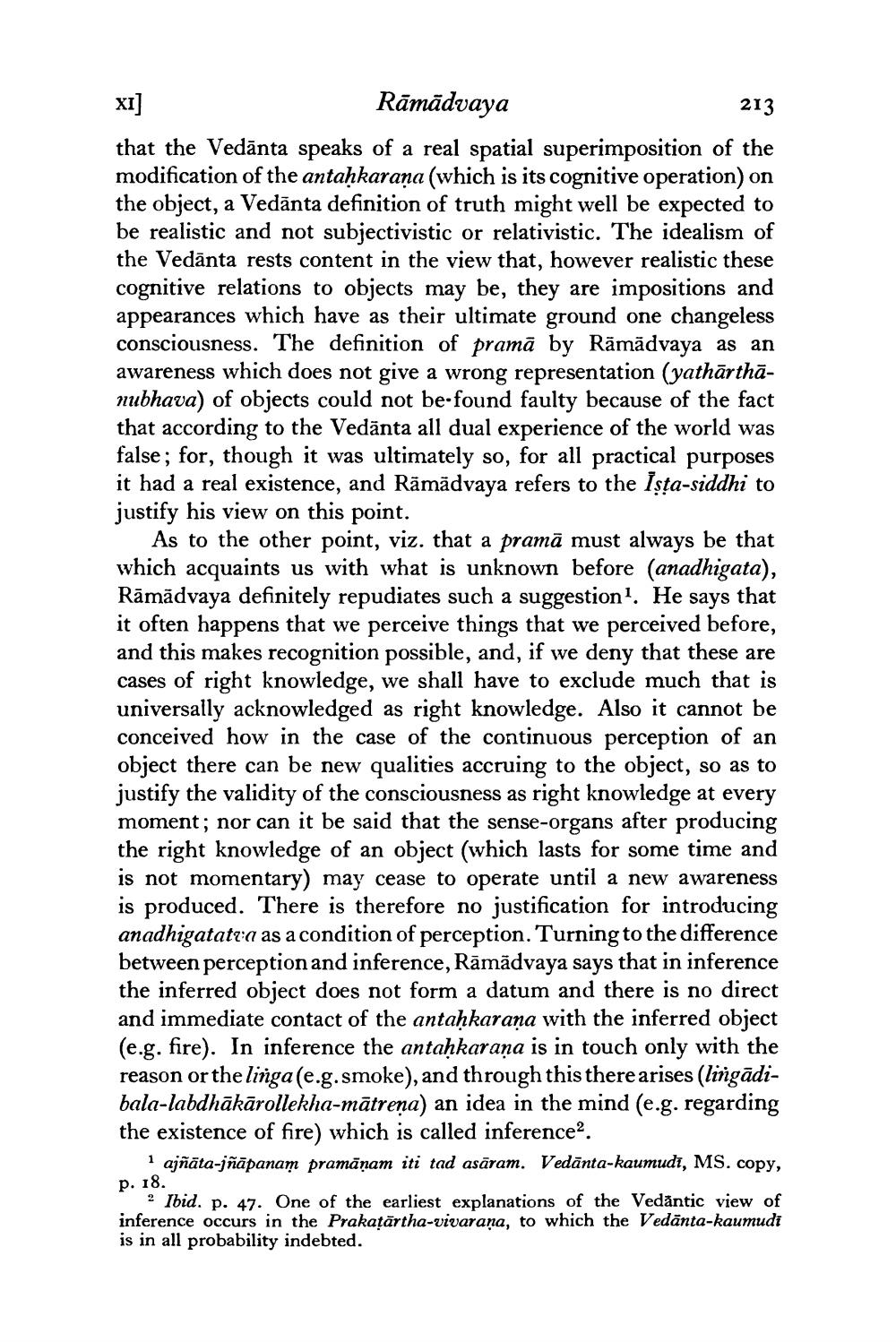________________
XI] Rāmādvaya
213 that the Vedānta speaks of a real spatial superimposition of the modification of the antaḥkarana (which is its cognitive operation) on the object, a Vedānta definition of truth might well be expected to be realistic and not subjectivistic or relativistic. The idealism of the Vedānta rests content in the view that, however realistic these cognitive relations to objects may be, they are impositions and appearances which have as their ultimate ground one changeless consciousness. The definition of pramā by Rāmādvaya as an awareness which does not give a wrong representation (yathārthānubhava) of objects could not be found faulty because of the fact that according to the Vedānta all dual experience of the world was false; for, though it was ultimately so, for all practical purposes it had a real existence, and Rāmādvaya refers to the Ista-siddhi to justify his view on this point.
As to the other point, viz. that a pramā must always be that which acquaints us with what is unknown before (anadhigata), Rāmādvaya definitely repudiates such a suggestion?. He says that it often happens that we perceive things that we perceived before, and this makes recognition possible, and, if we deny that these are cases of right knowledge, we shall have to exclude much that is universally acknowledged as right knowledge. Also it cannot be conceived how in the case of the continuous perception of an object there can be new qualities accruing to the object, so as to justify the validity of the consciousness as right knowledge at every moment; nor can it be said that the sense-organs after producing the right knowledge of an object (which lasts for some time and is not momentary) may cease to operate until a new awareness is produced. There is therefore no justification for introducing anadhigatatva as a condition of perception. Turning to the difference between perception and inference, Rāmādvaya says that in inference the inferred object does not form a datum and there is no direct and immediate contact of the antaḥkarana with the inferred object (e.g. fire). In inference the antahkaraṇa is in touch only with the reason or the linga(e.g.smoke), and through this there arises (lingādibala-labdhākārollekha-mātrena) an idea in the mind (e.g. regarding the existence of fire) which is called inference
1 ajñāta-jñāpanam pramāņam iti tad asāram. Vedānta-kaumudi, MS. copy, p. 18. . Ibid. p. 47. One of the earliest explanations of the Vedāntic view of inference occurs in the Prakațārtha-vivarana, to which the Vedānta-kaumudi is in all probability indebted.




